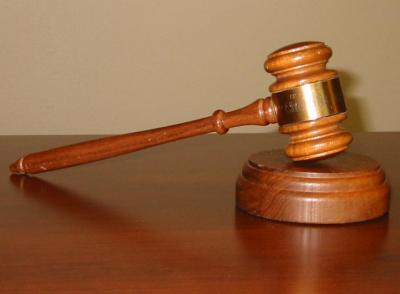- Departments
- Residents
- Business
- Visitors
Criminal Procedures
WHAT IS AN ARRAIGNMENT?
The arraignment is generally your first appearance in court on the citation or charge. The Judge will inform you of the charge and explain it. Next it will be confirmed that you understand your constitutional rights as explained at the beginning of the court session, and finally the maximum punishment and mandatory minimum punishment, if any will be stated. No testimony is taken or evidence presented at the arraignment.
WHAT ARE MY CONSTITUTIONAL RIGHTS?
All persons accused of any crime or traffic offense that might result in a jail sentence have the following rights:
1. To have a lawyer present with you at all hearings;
2. To have a lawyer appointed at public expense if you can't afford to hire one to represent you;
3. To represent yourself without a lawyer;
4. To a public and speedy trial;
5. To a trial before a jury of your peers;
6. To cross examine any witnesses who testify against you;
7. To call witnesses to testify on your behalf, and have the Court compel their attendance;
8. To testify or not testify yourself; if you choose not to, no one can make you testify;
9. To appeal to Superior Court if you are convicted after a guilty finding.
After informing you of your constitutional rights, you will be asked by the Judge to enter a plea of guilty or not guilty to the charge(s).
SHOULD I TALK TO A LAWYER BEFORE ENTERING A PLEA?
In many cases this is a good idea. The Judge, at your request, will continue the arraignment. If you wish to plead not guilty at this state, the Judge will request that you have your lawyer put in a Notice of Appearance before your next scheduled court appearance. If you fail to appear at any hearing, your bond or bail, if posted, will be forfeited and the Judge will issue a bench warrant.
IF I AM FINANCIALLY UNABLE TO HIRE A LAWYER, HOW DO I QUALIFY FOR A PUBLIC DEFENDER?
At the arraignment, indicate to the Judge that you are unable financially to hire a lawyer. The Judge will request that you complete a financial affidavit with the clerk at the counter. The clerk will review your affidavit form and determine, according to the appropriate financial guidelines, your eligibility for court-appointed counsel. If you qualify, you will receive the name, address and telephone number of the court-appointed attorney. It is your responsibility to contact the lawyer immediately for an appointment and be available for all meetings as requested by the lawyer.
IF I PLEAD GUILTY, WHAT WILL HAPPEN?
If you plead guilty, it means you admit the charge and the elements to prove the charge. By pleading guilty you waive your constitutional rights, and in most cases, will be sentenced right then. However, you may speak on your behalf at sentencing. The Judge will then sentence you. In some cases the Judge will refer you to the sentence monitoring clerk for a pre-sentence investigation. In such a case the sentencing will be continued until the pre-sentence report is completed.
WHAT HAPPENS IF I PLEAD NOT GUILTY?
A not guilty plea denies the charge and none of your constitutional rights are waived unless you expressly wish to do so. You are presumed innocent and the prosecution must prove your guilt beyond a reasonable doubt at a subsequent trial. The next hearing will be a pre-trial conference where the prosecutor will be present. You and your lawyer, if you have one, are required to be present. At this conference all motions are heard and a trial date is set. Information about all the evidence in the case and witness names are exchanged. The next hearing will be a trial confirmation. This hearing is scheduled one (1) week before the actual trial date to confirm that both sides are ready to proceed to trial. You and your lawyer, if you have one, must be present at the confirmation hearing.
WHAT SHOULD I WEAR AND HOW SHOULD I ACT IN COURT?
Suitable attire is required. Shoes and shirts are necessary. Halter tops, tank tops, and shorts are not permitted. Hats are to be removed upon entering the courtroom. No smoking, food or drink will be allowed. Children may be present in the courtroom, but if they disturb the proceedings you may be requested to remove them. The court does not provide child care. Upon your arrival, check in with the clerk at the counter and then have a seat in the courtroom until the session convenes. When your case is called, come forward and stand behind the podium until instructed otherwise by the Judge.
WHAT MUST I DO IF I CAN’T PAY ALL OF MY FINE TODAY?
If you can’t pay all of your fine at sentencing, you may request a time payment agreement from the Judge. This is an agreement with the court for payments and must be strictly adhered to. Read the payment agreement carefully, as failure to follow the agreement can result in a possible suspension of your license and fines and costs assigned to a collection agency.

